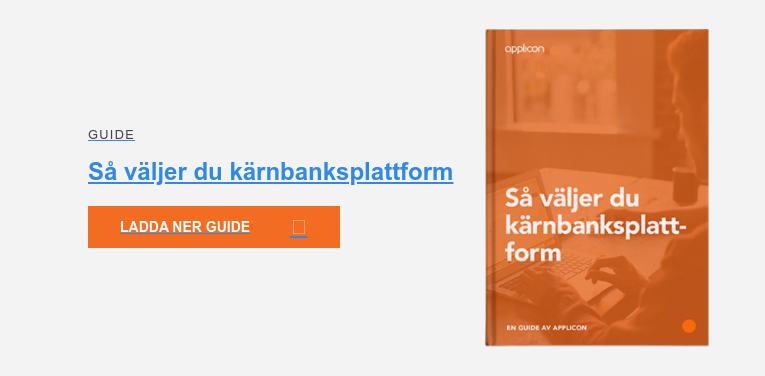How do you go about finding the right partner? We have compiled a list of seven essential questions you should ask suppliers before deciding on one.
1. “How well do you know banking?”
It’s easy to assume that the supplier of a core banking solution has excellent knowledge of how a bank operates. But the fact is that it’s usually not the case. Most banking platforms are simply a version or copy of an operating system. Even if your supplier is knowledgeable and engaged in developing their specific solution, most of the time, they are more generalists within IT than experts in banking.
If you choose a supplier with less banking experience, you will be the one who ensures that everything runs smoothly. A more experienced supplier in banking can take overall responsibility and be more of a rock for your management and organisation.
2. "Do you have the right skills and enough resources to help us?"
Changing a core banking solution often turns into a joint project between the bank’s IT department and the supplier’s experts. On top of the implementation itself, the bank’s ongoing business needs to continue unobstructed. The inevitable question becomes, “What do we prioritise – the project or our day-to-day?”. Throughout the project, you will alter plans, and the focus and priorities will change. That’s why it’s essential that your supplier can handle any sudden changes that occur during the project and deploy resources wherever needed. The ability to drive agile projects is an important factor to keep in mind.
Read more: The competencies you need when implementing a new core banking solution
3. “Will you be a good fit for us?”
The better your collaboration with the core banking supplier is, the easier it will be to implement your new solution. Regardless of your partner's competencies, resources and experience, it can still turn out wrong if your values differ too much or your cultural differences are too significant. It’s challenging to guesstimate how well your collaboration will work by only relying on a presentation of the company or resumés. However, this is usually easy to identify when you first meet. Trust your gut feeling and encourage suppliers to be open about how they feel.
4. “What does your plan for future development look like?”
It’s common for banks to stall the development of their current banking solution whilst waiting for the new one. This means that your pace of innovation often increases towards the end of the project. An experienced supplier will know this and understand that your digital customer offerings are constantly under development. That’s why your supplier must have a roadmap for continuously developing the new banking solution even after implementation.
5. “As the supplier, can you manage the big picture?”
Your bank’s digital solution encapsulates several systems and even a number of different partners and subcontractors. It can also involve partial solutions where a particular service gives you the prerequisites to execute tasks successfully. Hence, when changing your core banking solution, there might be existing solutions you want to preserve and integrate into the new platform.
It’s important to consider how you want to set up your future ‘supplier family’ to make managing your solution as easy as possible. These thoughts should include operations, maintenance, and development. Ensure that your supplier can manage the overall responsibility of the platform as well as the coordination of several subcontractors.
6. “Will we be one of your larger customers?”
To qualify as a supplier of your new core banking platform, they must be able to divert enough resources to handle your needs during implementation but also for upkeep and development. Everyone with experience in driving IT projects knows that no matter how well you plan ahead, you’ll meet unexpected challenges and changes in priorities.
Will you become one of the supplier’s larger customers? No problem. However, if you are to become one of the supplier’s smaller clients, they need to guarantee that you won’t be deprioritised in situations where other customers need a lot of attention.
7. “How well does the whole thing work – both the platform and the supplier?”
The banking platform itself can more or less be interconnected with the company who installs and maintains the solution. If you operate a large bank, it’s important to work with the market leaders on all levels. For a mid or small sized bank, the optimal solution may differ. Is your business small and you know that you will maintain a low volume in the foreseeable future, a local solution from a smaller supplier might work. But how should you think if you don’t currently have high volumes, but see the potential for it in the future?
Here, it’s important to evaluate different suppliers to see what platforms give you the opportunity to grow whilst keeping costs correspondingly low.
Is there an opportunity to change your supplier later on but keep the platform? If you expand internationally in the future, is getting local support on different markets a possibility? Create your own checklist of requirements and wishes before you start the procurement process. Your options might seem similar, but the differences lie in the details.
Are you curious how Applicon answers these questions? Contact us and we’ll tell you more about how we’re thinking and what support you can expect from us during the journey toward a new core banking solution.




